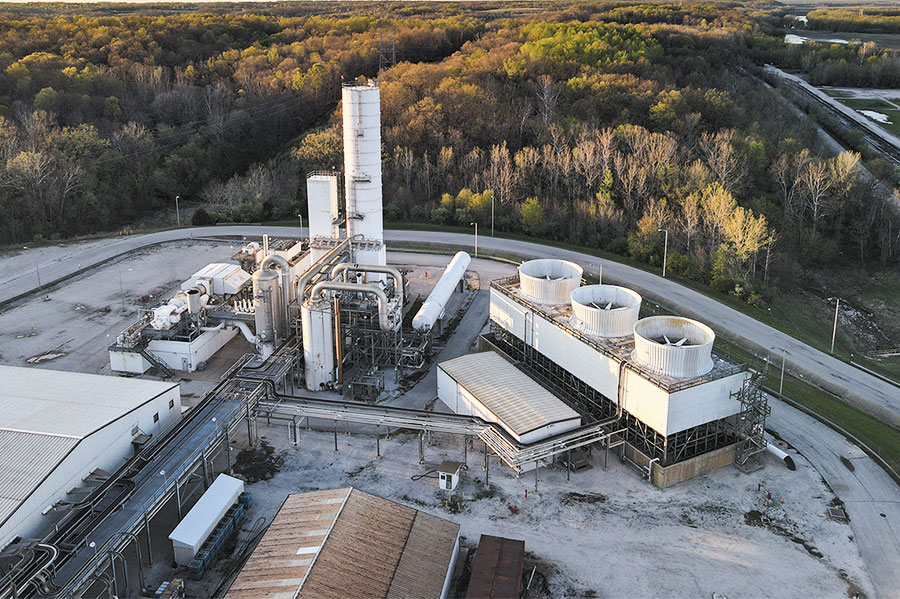Subscriber Benefit
As a subscriber you can listen to articles at work, in the car, or while you work out. Subscribe NowResidents are pushing back against plans for a pair of underground carbon dioxide storage wells in western Indiana.
Wabash Carbon Services LLC, part of Wabash Valley Resources, is seeking permits to build two wells in Vermillion and Vigo counties to store carbon dioxide produced in fertilizer production, the Tribune Star reported. Plans call for injecting 1.67 million metric tons of carbon dioxide per year into the wells over 12 years starting in 2026, according to the U.S. Environmental Protection Agency.
More than 150 people attended a hearing on the project Thursday at Indiana State University. Many residents complained about a lack of communication about the project and the potential for groundwater contamination and accidents that could release carbon dioxide into the atmosphere.
EPA regulators say the project shouldn’t have any significant environmental impact. Agency officials say they would monitor the wells during the 12 years of injections and for a decade after the work is complete to ensure the wells work properly, the carbon dioxide doesn’t move and drinking water remains safe.
Wabash Valley Resources, which was formed in 2016 to acquire a shuttered Duke Energy coal plant in Vigo County, began moving forward with the project after state lawmakers passed legislation requiring the company to compensate landowners for the porous, underground rock formations underneath their property that will hold carbon dioxide.
The plant currently produces hydrogen-rich syngas, but the company plans to retrofit the facility to also produce anhydrous ammonia fertilizer and separate CO2 for sequestration.
The $900 million endeavor, which has received funding from Arizona-based battery manufacturer Nikola Corp. as well as the U.S. Department of Energy’s Carbon Storage Program, will address a high demand for a reliable supply of agricultural ammonia used for crops such as corn and wheat without harming air quality, company officials say.
While carbon-capture technology has the support of the Biden administration and EPA officials, some environmental advocates and consumer protection groups caution that the process does not come without risk, pointing to an incident in Mississippi in February 2020 when a CO2 pipeline burst, resulting in 45 people being hospitalized.
It also carries the risk of contaminating drinking water and stimulating earthquakes, according to the National Resources Defense Council.
Please enable JavaScript to view this content.


Capturing the gas of life to what end, faux climate change agenda!
I have commented on this project previously on IBJ. True sustainability is to convert the carbon dioxide into other chemicals to fully close the carbon cycle rather than sequestering the carbon dioxide underground.